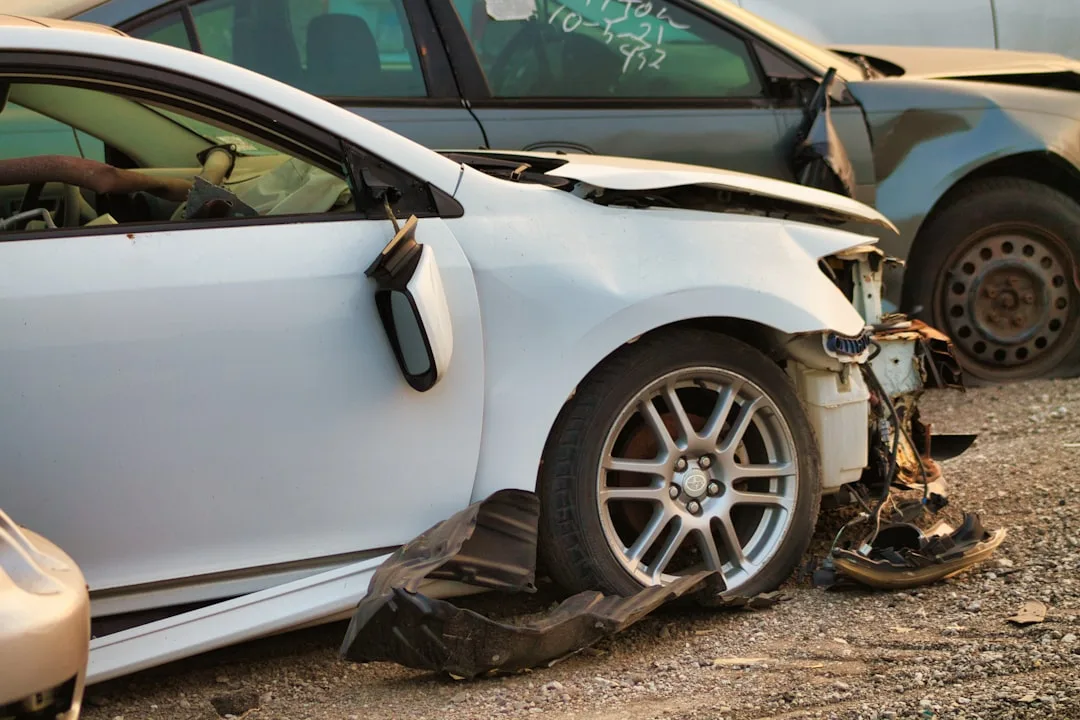While everyone hopes to avoid accidents, collisions can happen to even the most cautious drivers. That’s where collision insurance comes in—it’s essential to protecting your vehicle and minimizing the financial impact of accidents. This article dives deep into what collision insurance is, how it works, what it covers, and whether or not it’s right for you. By the end, you’ll understand this important aspect of auto insurance and how it can provide peace of mind in an accident.

What Is Collision Insurance?
Collision insurance is auto insurance coverage paying for damage to your car if you’re involved in an accident, regardless of who is at fault. Unlike liability insurance, covering damage to other people’s vehicles and property, collision insurance explicitly protects your vehicle. If you are asking yourself the question, “What is collision insurance?” know that whether you hit another car, collide with an object (such as a tree or fence), or experience a single-car accident like rolling over, collision insurance covers the cost of repairing or replacing your vehicle. It is not typically required by law, but if you have a lease on your vehicle, your lender may require you to carry it.
If your vehicle is paid off, collision insurance is optional, but it can still be a wise choice for protecting your investment. Collision insurance helps ensure you’re not left facing hefty repair bills if your vehicle is damaged in an accident, making it a key component of comprehensive car insurance plans.
What Does Collision Insurance Cover?
Collision insurance is designed to cover physical damage when involved in a collision, regardless of fault. Depending on the extent of the damage, it helps pay for repairs or replacement costs. Suppose you’re involved in a crash with another vehicle. In that case, collision insurance will cover the damage to your car, whether the accident was your fault or the other driver’s fault (provided the other driver is uninsured or underinsured and you don’t have the appropriate coverage).
Collision insurance also covers situations involving no other vehicles, such as hitting a tree, crashing into a guardrail, or rolling your car. It can help cover the repair costs, provided you don’t know who the at-fault driver is. It can also cover damage from colliding with objects. This includes scenarios where you accidentally back into a pole or hit a parked car. In some cases, collision insurance may also cover the cost of towing your vehicle, depending on the specifics of your policy. However, it’s important to note that collision insurance does not cover damage caused by factors unrelated to a collision. For protection against those types of incidents, you’ll need comprehensive insurance, often paired with collision coverage, for more complete protection.
What Collision Insurance Does Not Cover
While collision insurance covers many accident-related damages, its coverage has some limitations. Understanding what collision insurance does not cover can help you decide whether additional types of insurance are necessary. It does not cover theft, vandalism, fire, flood, or natural disasters. These incidents are covered under comprehensive insurance, often purchased alongside collision insurance.
Collision insurance won’t cover medical expenses if you or your passengers are injured in an accident. For medical-related costs, you’ll need personal injury protection (PIP) or medical payment coverage, depending on your state and policy specifics. It only covers damage to your vehicle. You’ll need liability insurance to cover damages to another person’s car or property. Understanding these limitations is essential when deciding how to structure your auto insurance policy to provide the protection you need for all potential risks.
How Collision Insurance Works
Like most types of insurance, collision insurance involves paying a premium in exchange for coverage. In an accident, you must file a claim and pay a deductible. The amount you pay for collision insurance varies depending on your driving history, vehicle type, where you live, and the deductible you choose.
A deductible is the amount you must pay out of pocket before your insurance kicks in—typical deductibles for collision insurance range from $250 to $1,000. For example, if you’re involved in an accident that causes $5,000 worth of damage to your car and your deductible is $500, you’ll pay the first $500, and your insurance company will cover the remaining $4,500. The maximum amount your insurance will pay for damages is based on the value of your car at the time of the accident. If your vehicle is totaled, collision insurance will pay you the actual cash value (ACV) of the car, which is the market value minus depreciation.
If the repair cost exceeds its current market value, your insurer may consider it a total loss, and you’ll receive a payout for the car’s value rather than repair costs. It’s essential to remember that cars lose value over time, so if your vehicle is older or has depreciated significantly, the payout might not cover the cost of replacing it with a new car.
Is Collision Insurance Worth It?
If you own a newer or more expensive vehicle, collision insurance is highly recommended because the cost of repairs or replacement could be substantial. On the other hand, if your car is older, collision insurance may not be worth the premiums, especially if the payout in the event of a total loss would be minimal.
Consider your driving habits and risk factors. Do you commute long distances, drive in high-traffic areas, or frequently encounter hazardous road conditions? If so, collision insurance can provide peace of mind, knowing you’re protected against accidents. If you’re financing or leasing your car, your lender or leasing company likely requires collision insurance to protect their investment in the vehicle. Ultimately, collision insurance is a personal decision based on your vehicle’s value and your comfort level with risk. It offers essential protection against costly repairs for many drivers, making it worth the investment.
How to Save on Collision Insurance
While collision insurance is a valuable part of an auto insurance policy, it doesn’t have to break the bank. Drivers with a safe driving history are often rewarded with lower insurance premiums. Different insurers offer different rates for collision coverage, so it’s worth comparing quotes from multiple companies. Look for insurers with competitive rates and customer satisfaction ratings. By reducing your premiums, you can make collision insurance more affordable while maintaining valuable protection for your vehicle.

Collision insurance covers repairs or replacing your vehicle after a collision, whether with another car, an object, or a hit-and-run situation. While not always required, collision insurance offers peace of mind for drivers who want to protect their vehicle investment. By understanding how collision insurance works, what it covers, and how to make informed decisions about your policy, you can ensure you’re adequately protected on the road.

Jessi is the creative mind behind The Coffee Mom, a popular blog that combines parenting advice, travel tips, and a love for all things Disney. As a trusted Disney influencer and passionate storyteller, Jessi’s authentic insights and relatable content resonate with readers worldwide.
